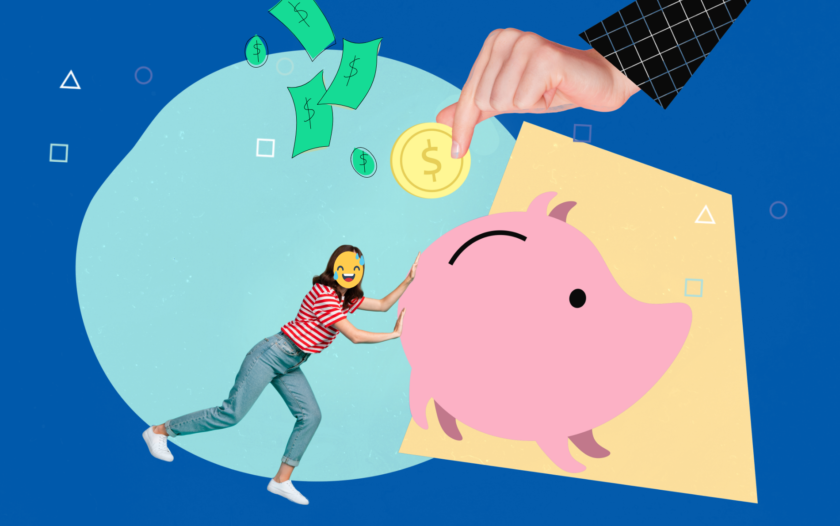Pawn Shop Loan or Personal Loan – Which One Should You Go For?
About Trevor
Trevor Mahoney is a financial services writer and content creator based out of Los Angeles, California. He holds a Bachelors of Science in Finance from Santa Clara University. In his free time, he enjoys hiking and lounging on the beach.
Read full bio
At a Glance
While pawn shop loans and personal loans may seem similar on the surface, they are quite different. Each serves their own purpose and has an ideal place and time to be used. Understanding the similarities and differences between these types of loans can help you learn which is right for you.
In this article, you’ll learn:
What is a pawn shop loan?
For those unfamiliar with the term, a pawn shop loan is a specific type of loan offered only by pawn shops. In return for bringing a pawn shop an asset you own; they will provide you with funds for whatever purchase you may need. You then repay the loan amount that you borrowed and take back the asset that you allowed the pawn shop to hold onto.
How does a pawn shop loan work?
The process by which a pawn shop loan works is quite simple:
- A potential borrower enters the pawn shop with an asset such as jewelry, electronics, firearms, instruments, or something similar.
- The pawn shop attendant evaluates the value of the item.
- The pawn shop attendant offers you a certain amount of cash as a loan in return for holding onto the item you brought as collateral.
- You then repay the pawn shop within a month to a few months, depending on the terms, or they sell your item.
Pros and cons of pawn shop loans
There are many pros and cons to a pawnbroker loan, and understanding these can help you make the correct borrowing choice:
| Pros | Cons |
|---|---|
|
|
|
|
|
|
What is a personal loan?
Unlike a pawn shop loan, a personal loan is offered by a bank, credit union, or third-party lender. It is a lump sum of money typically in an amount ranging from $1,000-$100,000 and can have a total repayment term of five to seven years. There are both secured and unsecured personal loans, with the latter requiring no collateral whatsoever. One major difference between a pawn shop loan vs. personal loan is that a credit check will be required for a personal loan.
Use a personal loan to gain quick access to funds for your next major purchase
Personal loans as a way of bolstering your unexpected financial hardships
How does a personal loan work?
When looking at a pawn vs. personal loan type, the actual process of getting the loan is different:
- A borrower must determine how much they need from the loan amount.
- A borrower must locate a lender and gather financial/personal information such as their current address, income level, SSN, and more.
- A credit check will be run on the borrower.
- The lender will determine whether or not to provide the borrower with the amount requested for the loan.
Interest rates for personal loans can certainly get high in some situations, but the average interest rate for personal loans will beat most pawn shops.
Learn more: How Do Personal Loans Work
Pros and cons of personal loans
Between a pawn and loan type, there are pros and cons associated with a personal loan:
| Pros | Cons |
|---|---|
|
|
|
|
|
|
Learn more: Pros and Cons of Personal Loans
Pawn shop loan vs personal loan: Key differences
| Loan Amount | One of the major differences between a pawn shop loan and personal loan is the amount of the loan. Personal loan amounts have far higher borrowing amounts, going up to $100,000 for most lenders, whereas pawn shop loan amounts are contingent on the value of the good you present to the pawn shop. |
| Repayment Period | Repayment periods for personal loans can range from five to seven years, whereas repayment to a pawn shop is usually due within a few months at latest. This is one reason why pawn shop loans often come with abnormally high interest rates. |
| Type of Security | Pawn shop loans are secured by the asset you bring to the pawn shop, but unsecured personal loans are extremely common. |
FAQs
In general, taking out a personal loan is usually safer and more cost-effective if you have the financial history and credit history needed to be approved for the loan. Additionally, unsecured personal loans exist that require no collateral, which means less risk on the part of the borrower.
No, a lack of repayment to a pawn shop will not be reported to the credit bureaus, meaning your credit will not be damaged.
The amount you can borrow from a pawn shop is contingent on the value of the item you bring to the pawn shop. Your loan amount will be a small percentage of this value. If you bring a very valuable good to the pawn shop, the loan amount you are offered may be higher.
Interest rates vary from state to state and fees are determined on this level as well. So long as the pawn shop is within the legal regulations of their state, however, they can determine interest rates and fees at will. These values are also decided based on the item you brought.
Yes, if an individual is unable to complete the repayment within the time period, they can pay the monthly fee and extend the pawn loan by another month. However, this means incurring more interest over time which can result in a cycle of debt.









